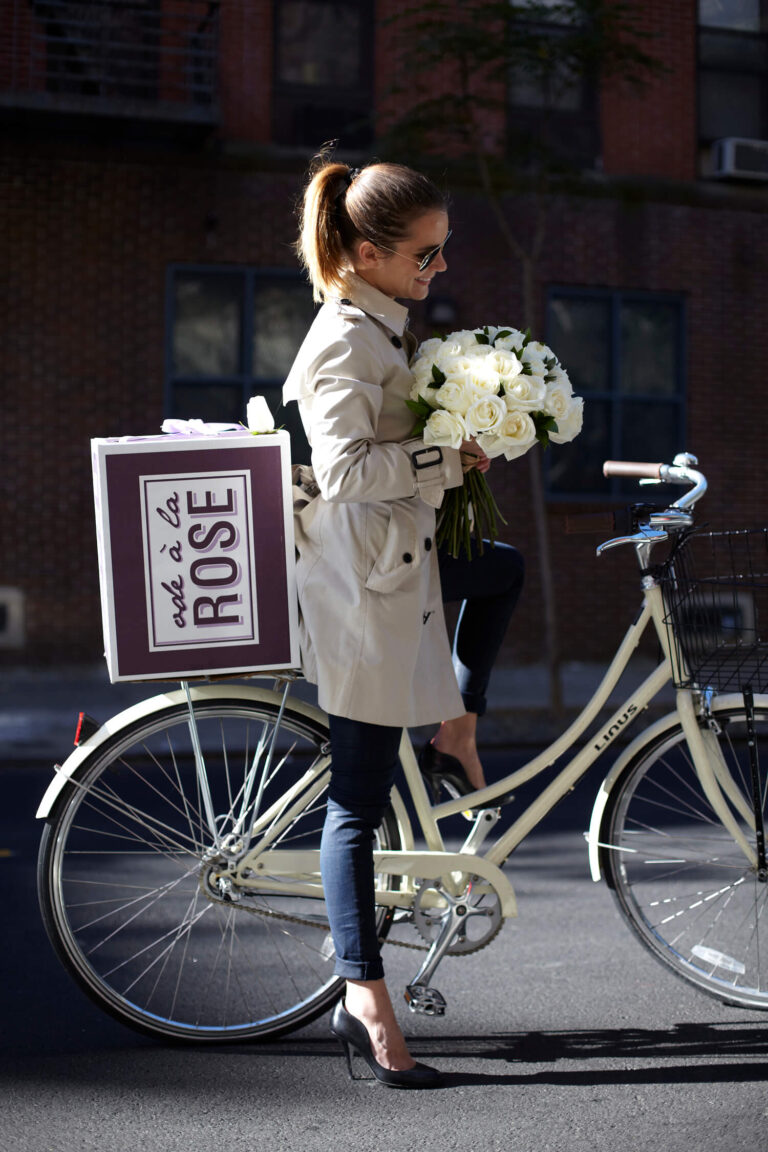There’s something undeniably special about the way women respond to flowers. They’re beautiful, yes - but their impact runs far deeper than petals and perfume. Why do women like flowers so much, and what makes a simple bouquet feel so powerful? From emotional connections to cultural traditions, this fascination is anything but superficial. Let’s explore the reasons behind it.
Check out these related topics:
- What is The Most Romantic Flower?
- What Flowers Are In Season?
- What Kind of Flowers Do Women Like?
- Can I Send Flowers To A Man?
- Best Flowers for Different Occasions
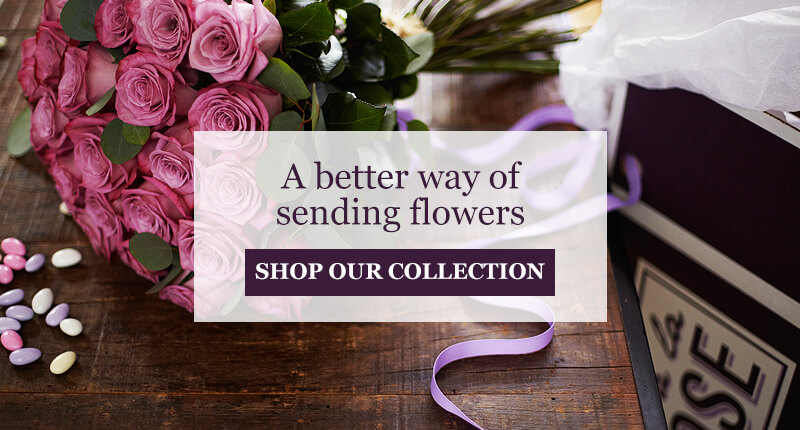
The Psychology Behind Women’s Love for Flowers
Human psychology plays a powerful role in shaping how we interpret gestures, and flowers are among the most symbolic.
For many women, receiving flowers triggers an emotional response rooted in both personal associations and social conditioning. This experience becomes especially meaningful when the gesture is unexpected (surprise!), reinforcing feelings of value, appreciation, and love.
Let’s take a closer look at what’s happening beneath the surface.
Emotional Impact
At the core of a woman’s love for flowers is the emotional resonance they carry. A bouquet isn’t just a collection of pretty petals, it’s a message wrapped in color, texture, and intention. Flowers are emotionally loaded symbols that can express affection, admiration, or compassion without a single word.
For many women, receiving flowers creates a moment of validation, surprise, and joy, especially when it’s tied to a thoughtful gesture.
Unlike practical gifts that serve a specific function, flowers are unapologetically sentimental. They communicate presence and emotional availability. In a world that often expects women to juggle multiple roles, partner, parent, and professional, flowers offer a pause, a visual and fragrant reminder that they are being seen and appreciated.
Sensory Appeal
Women often connect with beauty through sensory experiences, and flowers activate nearly all of them. The colors spark visual joy, the scent can calm or excite, and the texture of petals adds a tactile softness.
This full-bodied sensory experience taps into deeper emotional responses. Studies in sensory psychology have shown that floral fragrances can lift mood, ease anxiety, and even stimulate memories, offering a sort of instant emotional boost that lingers well after the petals have faded.
Plus, there's aesthetic harmony. Many women are drawn to surrounding themselves with things that elevate their environment. Flowers turn any space into something warmer, softer, and more intentional. When someone gives them flowers, it’s not just about the gesture; it’s about receiving beauty that enhances both the physical and emotional space they’re in.
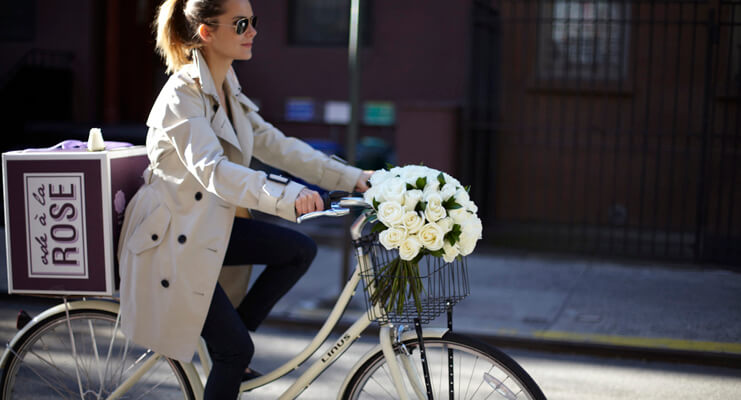
Cultural & Historical Reasons
The deep connection between women and flowers is no modern phenomenon, it’s been blooming across centuries and continents. In many cultures, flowers have been used to mark life’s most intimate and monumental moments, from birth and marriage to mourning and remembrance. They aren’t just decorations; they’re woven into rituals, art, mythology, and daily life.
In Victorian England, an entire “language of flowers” called floriography flourished, allowing people to send secret messages through carefully chosen blooms. In Japan, ikebana, the art of flower arranging, reflects spiritual discipline and mindfulness, while in Ancient Greece, flowers were often associated with goddesses and femininity.
So when we ask why do women like flowers, part of the answer lies in the way cultures have consistently aligned floral beauty with feminine identity, emotional expression, and ceremonial meaning.
Symbolism in Society
Across civilizations, flowers have symbolized different virtues, emotions, and societal roles, often tied closely to femininity:
- Ancient Egypt: The lotus flower represented rebirth and was associated with Isis, the goddess of healing and motherhood. It was also a symbol of beauty and sensuality, qualities culturally linked to women.
- China: Peonies, often called the “queen of flowers,” symbolize wealth, honor, and feminine grace. They are especially popular in weddings and spring festivals.
- India: Jasmine is revered for its intoxicating scent and symbolic connection to purity, love, and sensuality. It’s commonly worn in women's hair during traditional ceremonies.
- Western cultures: Red roses symbolize passionate love, white lilies represent purity, and daisies are linked to innocence, many of which have been assigned specifically feminine connotations throughout literature and art.
These meanings are passed down, consciously or not, influencing how we interpret the gesture of giving or receiving flowers today.
Rituals and Celebrations
Flowers continue to play a central role in important life events and ceremonies, many of which are heavily centered around women:
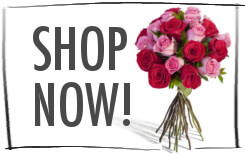
- Weddings: Wedding bouquets, floral crowns, and flower-draped altars are practically inseparable from modern wedding traditions, symbolizing romance, fertility, and new beginnings.
- Birth and Motherhood: It’s common in many cultures to give flowers to new mothers or incorporate them into baby showers and naming ceremonies, celebrating femininity, nurture, and life.
- Funerals and Memorials: Flowers such as lilies and chrysanthemums are used in mourning across cultures, honoring life and offering comfort, often tied to maternal or emotional remembrance.
- Religious and Spiritual Ceremonies: In Hinduism, Buddhism, and Christianity, floral offerings are part of prayers, symbolizing devotion, purity, and divine beauty, often linked to the feminine divine.
The presence of flowers in these rituals reinforces the emotional weight they carry. Over time, this collective cultural storytelling has helped shape the belief, often subconsciously, that flowers are a gift “meant” for women.
The Science of Flowers & Happiness
If flowers feel like magic, it’s because they sort of are, but not in the fairy tale sense. In reality, flowers have a measurable impact on our brains, bodies, and emotions. And while their beauty is universal, studies show women are particularly receptive to their emotional and psychological effects. From lifting spirits to reducing anxiety and even enhancing memory, flowers don’t just sit in a vase—they actively shape the way we feel and connect.
Here’s what the research reveals about why women like flowers, not just culturally or emotionally, but neurologically.
Study Findings
In one groundbreaking study from Rutgers University, every single woman who received flowers responded with a Duchenne smile, that’s the real kind, where the eyes crinkle and the joy is unmistakable. These women didn’t just experience a fleeting high. The boost in happiness lasted for days, unlike those who received more practical gifts like candles. Flowers, it turns out, offer emotional resonance that lingers.
What’s more, the presence of flowers seemed to have a social ripple effect. Recipients were more likely to initiate conversations, spend time with loved ones, and re-engage in postponed social plans. This suggests that for women, flowers act as emotional connectors, nurturing not just joy, but interpersonal closeness too.
Stress Reduction
For many women, flowers create an emotional sanctuary, something science backs up. A University of North Florida study found that women who kept flowers at home for just a few days experienced a significant five-point drop in daily stress levels. The blooms brought more than ambiance, they created calm.
In Japan, a separate experiment showed that viewing flowers after a stressful event lowered blood pressure and cortisol, the body’s main stress hormone. Brain scans even revealed reduced activity in the amygdala, the brain’s emotional danger zone. The mere sight of a floral arrangement acted like a psychological exhale.
For women balancing work, caregiving, and emotional labor, flowers offer a moment of beauty that doesn’t ask anything in return, a rare relief in a fast-paced world.
Memory Trigger
Ever smelled a bloom and felt your heart tug with familiarity? That’s not just nostalgia, it’s neuroscience. The limbic system, which governs both memory and emotion, is activated directly by scent. For women, who often attach deep emotional meaning to life events, flower-related memories tend to be vivid and long-lasting.
Roses might call up first loves. Lilies might bring back memories of a wedding day or a mother’s comforting embrace. In one study involving older adults, those who received regular bouquets actually performed better on memory tests than those who didn’t, suggesting flowers may stimulate cognitive function, not just feelings.
Whether it’s the visual beauty or the evocative fragrance, flowers become personal time capsules, connecting women to their past, identity, and most tender moments.

Personal Expressions and Social Bonds
A warm smile often accompanies the gift of a bouquet, reflecting the genuine delight and emotional connection flowers can evoke.
Flowers have long been vessels of human emotion, helping people express feelings that might otherwise go unspoken. For many women, receiving or giving flowers feels deeply personal – a nonverbal “language” of love, gratitude, sympathy, or support that strengthens social bonds. Handing someone a flower can say “I care about you” without a word, creating an instant emotional connection.
In this section, we explore how flowers communicate emotions and reinforce relationships on a heartfelt level.
Communication of Emotions
Flowers are often described as nature’s silent communicators, conveying feelings that words alone cannot capture. Historically, the art of floriography (the “language of flowers”) arose in the Victorian era to send coded emotional messages when propriety forbade open expressions of affection.
Even today, specific blooms carry symbolic meanings – a red rose for passionate love, a daisy for innocence, a lily for sympathy – allowing a bouquet to speak volumes on behalf of the giver. This nonverbal richness makes flowers powerful emotional validators. For instance, surprising someone with a bouquet essentially says, “I see you. I value you. I thought of you,” making the recipient feel seen and appreciated in a way that transcends words.
Women, in particular, often respond strongly to this form of heartfelt communication. Social research suggests that women tend to be attuned to emotional cues and are frequently expected to take on caring, empathic roles in relationships. As a result, a gift of flowers, with its thoughtful symbolism, can resonate deeply as an acknowledgement of feelings.
This unspoken emotional clarity is a key reason many women hold flowers so dear.
Strengthening Relationships
Beyond individual emotions, flowers play a delightful role in strengthening social bonds. A bouquet given in friendship or love is more than decor – it’s a social signal of caring that can bring people closer.
Psychologists note that flowers often act as “mediating and transitional objects” between people, carrying positive meaning within cultural rituals of connection. They’re a fixture at life’s meaningful moments, birthdays, weddings, anniversaries, even memorials – underscoring how deeply intertwined flowers are with our relationships and shared experiences.
In many cultures, a gift of flowers is expected to convey exactly the sentiment needed, from romance and congratulations to sympathy or forgiveness. This reliable symbolism helps loved ones communicate support during both celebrations and challenges, reinforcing trust and affection in the relationship.
Importantly, science backs up the idea that flowers nurture our social connections. In a 10-month study on the emotional impact of receiving flowers, researchers found that flowers “make intimate connections.” Participants who received bouquets showed increased contact with family and friends – a sign that the gesture inspired them to reach out and strengthen their relationships.
Flowers also famously boost romantic connections. In Western culture, they are a widely recognized signifier of romance, with roses in particular symbolizing love.
One intriguing French study found that women became more receptive to romantic advances when in the presence of flowers, highlighting how a floral backdrop can enhance positive social behavior and openness to connection.
These authentic emotional responses often lead to greater goodwill and reciprocity in relationships. In essence, flowers act as little ambassadors of affection, reinforcing social bonds by communicating care, sparking joy, and even smoothing over tensions (who hasn’t tried saying sorry with flowers?).
Modern Interpretations and Trends
Modern women still treasure flowers for emotional connection, but they also embrace them in empowering and self-nurturing ways. From using blooms as symbols of personal growth to buying bouquets for themselves as acts of self-care, contemporary interpretations of “flower power” are evolving.
Contemporary Symbolism
The symbolism of flowers is experiencing a fresh renaissance in modern culture. No longer seen only as a romantic gift from someone else, flowers today also represent self-love, empowerment, and mindfulness.
A striking example of this shift came from pop culture: in 2023, Miley Cyrus's hit song " Flowers” became an anthem of independence with the refrain, “I can buy myself flowers.” Many women embraced this message, viewing a bouquet not just as a token of romance but as a symbol of personal empowerment and healing.
Buying oneself flowers has become an affirming trend – a way for a woman to celebrate her own worth and bring beauty into her life without waiting for a partner’s gesture. In fact, recent consumer insights show a significant rise in self-gifting.
For example, 40% of women surveyed in early 2024 said they were likely to purchase a Valentine’s gift for themselves, up from 31% the year before. This reflects a broader movement of women indulging in small joys like fresh blooms as part of their self-care routine and declaration of independence.
Beyond self-empowerment, floral symbolism has broadened to encompass friendship and solidarity. The emergence of “Galentine’s Day” (celebrating platonic love among friends) and the popularity of sending flowers to friends or even coworkers “just because” illustrate how flowers are now a universal gesture of affection.
Industry trends mirror this change: many florists and brands now offer arrangements aimed at wellness and friendship, offering spa kits as gifts and personalized notes to express your current wish, not just romance. Rather than focusing only on lovers, the floral industry is tapping into the idea that flowers can uplift one’s own space and mood or strengthen a circle of friends.
Culturally, flowers are also being reinterpreted as symbols of feminine strength and resilience. While blooms have historically been linked with femininity and grace, today’s narratives highlight how their growth and beauty under challenging conditions mirror the resilience of women.
The delicate yet persistent desert rose, for example, can be seen as a metaphor for thriving despite adversity. Such analogies have been adopted in women’s empowerment circles, where giving or displaying certain flowers can carry messages of encouragement and solidarity.
Even the act of tending to flowers – whether arranging a bouquet or caring for a houseplant – has taken on a mindful, meditative significance. It’s not uncommon to hear women speak of buying a bright bunch of sunflowers to “brighten my mood and remind me of positivity,” symbolizing optimism and hope.
In summary, contemporary symbolism around flowers is far more inclusive and introspective than in the past: flowers represent not just romantic love, but also personal well-being, empowerment, friendship, and the full spectrum of emotions women navigate in modern life.
Psychological Research
Modern research in psychology and social science has shed light on why flowers have such a profound emotional effect, and the findings validate what many women intuitively feel. Studies repeatedly show that flowers boost emotional well-being and even reduce stress. Here are a few enlightening discoveries from recent decades:
1. Happiness and Social Connection:
A 10-month study at Rutgers University found that receiving flowers triggers immediate joy and genuine smiles, and also elevates mood for days afterward. Every participant presented with flowers, especially the women in the study, reacted with a true “Duchenne” smile of delight, and they reported feeling less anxious or blue even three days later.
Notably, those with flowers in their home also had more frequent contact with friends and family, suggesting that flowers foster positive social energy and encourage people to connect. As the lead researcher put it, “flowers are a natural and healthful moderator of moods,” strengthening our sense of happiness and togetherness.
2. Stress Reduction:
Research from the University of North Florida revealed a striking stress-relief effect from flowers. In a controlled study, women who received a surprise bouquet had significantly lower stress levels compared to those who received a luxury candle or no gift at all. The women with flowers in their lives reported feeling calmer and less worried during the study period.
This finding aligns with other research suggesting that the mere presence of plants and floral scents can physiologically ease tension. It’s no wonder that experts have dubbed fresh flowers and greenery the “ultimate in self-care,” as this simple addition to one’s environment can meaningfully soothe daily stress.
3. Emotional Wellness and Energy
A Harvard Medical School study on the “Home Ecology of Flowers” found that living with flowers can measurably improve emotional well-being. Participants who kept fresh flowers in their home for just a few days reported feeling less anxious and more compassionate towards others, as well as fewer episodes of depression or worries.
Astonishingly, the mood lift carried over into their work life too – people described greater happiness and enthusiasm at work after starting their mornings with flowers at home. The presence of blooms essentially “fed” positive emotions like kindness and optimism, supporting the idea that flowers nurture not only interpersonal bonds but also one’s relationship with oneself. Psychologist Nancy Etcoff noted that these results underscore flowers’ positive impact on well-being, validating the age-old practice of using flowers to cheer up oneself or others.
From these studies, it’s clear that the appeal of flowers is rooted in genuine psychological benefits. They lift our mood, reduce our stress, and enrich our social interactions in ways that few other gifts or décor items can.
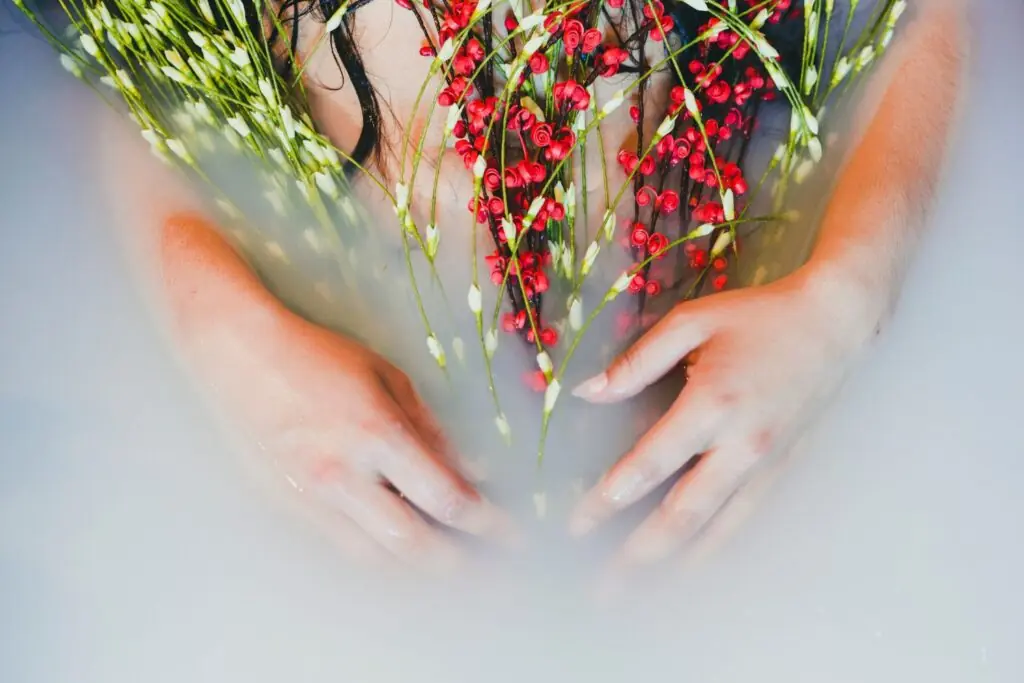
When Do Women Appreciate Flowers Most?
There’s a quiet kind of magic in the moments when a bouquet arrives unexpectedly, or right on cue. While flowers are always welcome, on some occasions, they transform from simple gifts into something unforgettable. It’s not about extravagance, it’s about timing, thought, and emotional truth. So, when do flowers mean the most?
Here are the moments that matter:
- Anniversaries that Still Sparkle: Whether it’s one year or fifty, flowers mark the heartbeat of a relationship. Roses say, “I’d choose you again.” Peonies whisper, “We’ve grown beautifully.”
- Birthdays That Feel Personal: A birthday bouquet tailored to her favorite colors or childhood flowers says, “I know you.” It’s a reminder that her life is worth celebrating in full bloom.
- Graduations and New Beginnings: For women earning degrees, launching businesses, or finally taking that big leap, flowers symbolize pride, transformation, and hope.
- Valentine’s Day (Of Course!): The classic flower holiday still holds weight. A well-chosen bouquet becomes a physical reminder of affection, passion, or even a fresh start.
- Women’s Day & Empowerment Moments: On March 8th, and beyond, flowers become tributes. Not just to romance, but to strength, resilience, and every unsung achievement.
- Holiday Tables & Celebrations: Whether it’s Thanksgiving warmth or Christmas sparkle, flowers make her feel like the centerpiece of it all. Hosting? Surprising her with a floral arrangement sets the tone for grace and gratitude.
- Mother’s Day Blooms: For the women who’ve given love without limits, whether moms, grandmothers, or maternal figures, flowers on this day feel like a quiet thank-you, a hug in bloom, and a tribute to everything they’ve carried, often unseen.
- Work Milestones: Promotions, project launches, retirement, or just crushing a stressful month, recognizing her ambition with flowers, says, “I see your hustle, and I honor it.”
- Welcoming Motherhood: Becoming a mom is transformative, raw, and beautiful. New baby flowers soften the chaos, wrap her in appreciation, and remind her that she’s loved, not just needed.
- Just Because Moments: Sometimes, it’s the Tuesday with no plans that needs the flowers most. These surprise gestures are often the ones she remembers forever.
Because the right bouquet at the right moment doesn’t just say “I love you.” It says: “I see you. Right now. As you are.”
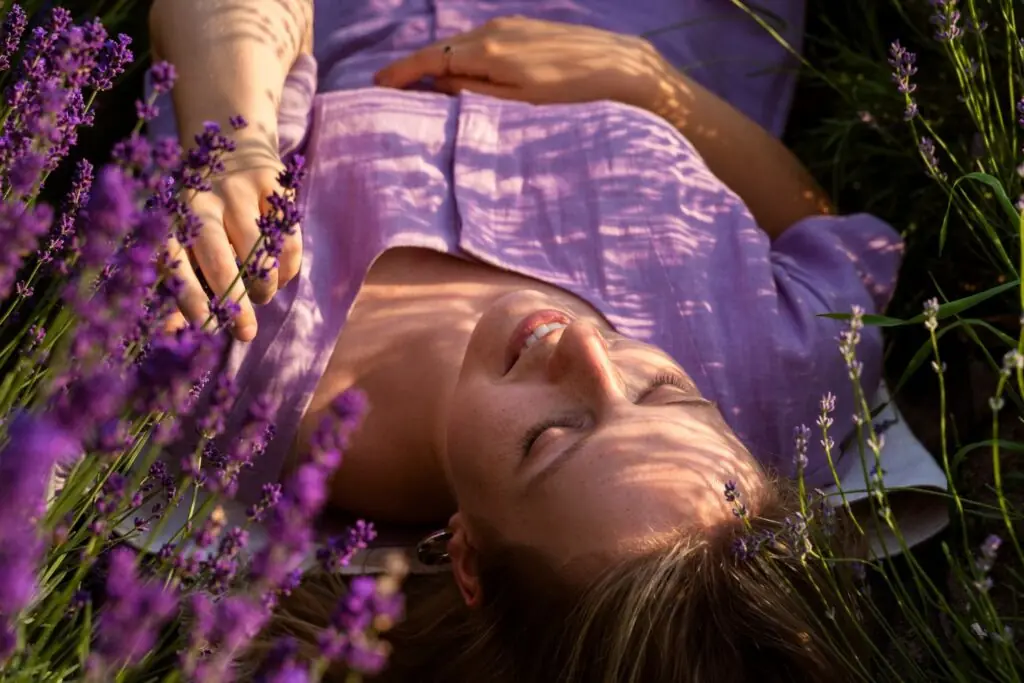
Conclusion
So, why do women like flowers? Because they’re more than petals and stems. They’re emotion in bloom. They speak when silence is too heavy, surprise when routine dulls the day, and hold space for feelings we don’t always know how to voice.
Flowers mirror the emotional complexity women often carry, delicate yet strong, fleeting yet unforgettable. From the science of joy to the language of love, the beauty of flowers resonates with how many women experience the world: through connection, care, and meaning.
As Victor Hugo once wrote: “Life is the flower for which love is the honey.”
And maybe, just maybe, that’s the real reason we keep giving them.

